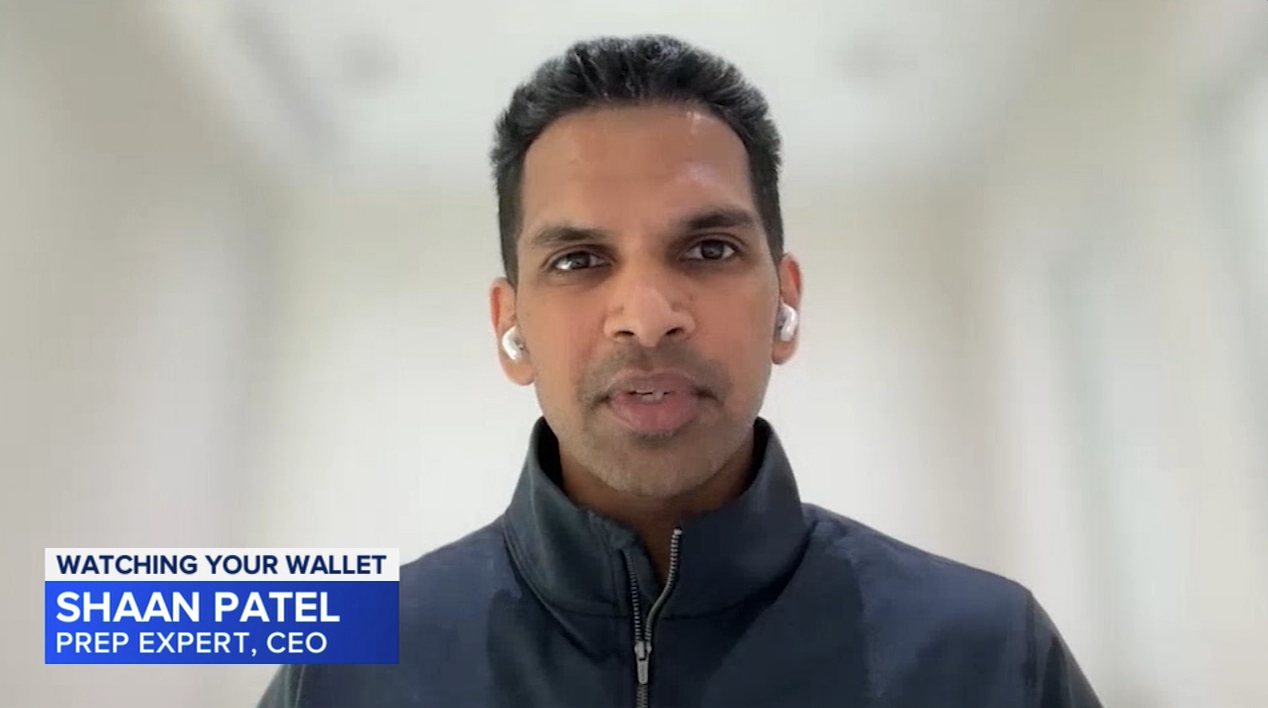Basic Medical School Requirements
One of the most frequent questions we’ve been asked over time by students is “how can I get into medical school?” There is no one simple answer to that question unfortunately, because every medical program is different. But we can still help you out.
Here are some very basic medical school requirements and tips that will help when you’re ready to start applying to programs.
Don’t forget to check out our various SAT and ACT prep class options today.
Coursework
Leading things off, while each school has its own specific requirements, there are some common courses across programs you’ll need to take.
You should plan to take a year each of the following courses to start:
- General Biology
- Physics with lab
- General Chemistry (inorganic chemistry) with lab
- Organic Chemistry with lab
- Calculus
- English
- Sociology
- Psychology
While there is a small number of schools that don’t have specific course requirements, in general, you should plan to take the aforementioned courses at some point in your undergraduate career. A good idea is to look at prospective medical schools you’d interested in applying to, and check out their requirements early in your undergraduate career, so you can know ahead of time what classes you’ll need to take as soon as possible.
[leadmagnet_five]
One option that many students elect to do is choose a science-related major, like Biology, Chemistry, or Biochemistry to cover many of those medical school prerequisites simultaneously. While this is a common choice, don’t think that it’s your only path to get into a medical school program.
Many schools will take chances on non-science majors; the only caveat you’ll face is planning your course loads more carefully in order to satisfy the course requirements. You could instead opt for a science-related minor, take on an even heavier course load per semester, or simply graduate a year later if necessary.
GPA
Don’t underestimate how important your GPA will be in the process.
It’s not a shock to learn that: a) medical school programs are, by nature, highly competitive for the best possible students to train, and b) as a candidate, you will need to have a high GPA for a chance to get in.
Again, every program has its own strict admissions standards but the general number to shoot for is a 3.5 GPA. Be conscious of the school you’re applying to and if they’re known for grade inflation because that can often affect medical school admission boards when considering applicants.
For example, Harvard was known for grade inflation back in the day with many students. Keeping that in mind, just remember to work hard and to get that GPA as high as possible over the course of your undergraduate college career.
MCAT Score
There’s really only one test score that medical schools are looking at regularly.
We are often asked by students and parents looking at a medical school, “how high does my SAT or ACT score have to be for medical school?” The answer once and for all is…IT DOESN’T MATTER, ONLY THE MCAT MATTERS. Again, the only test you REALLY need to work about preparing for when it comes to medical school entry is the MCAT itself.
The subject matter it covers is remarkably similar to what you’ll already need to learn in your coursework: physical sciences (e.g., physics and inorganic chemistry), biological sciences (biology and organic chemistry), verbal sciences (English) and psycho-social sciences. Make sure to sharpen up your knowledge and skill in tackling this subject matter.
Also, don’t be afraid to look into MCAT test prep too. It should go without saying, the better your MCAT score is, the easier it will be for you to get admitted into a solid medical school. But stop stressing over the SAT or ACT when it comes to med school applications, stress over the MCAT instead.
Undergraduate Degree
Before medical school, you need to get a college degree first.
As was stated earlier, you DO NOT NEED to have a science-related undergraduate degree. Will it make completing all of your prerequisite courses easier? Absolutely. But it’s not a 100% necessary item. However, you absolute HAVE TO HAVE an undergraduate degree to qualify for any legitimate medical school program.
As was mentioned earlier, some people believe that a non-science degree can improve your chances. For example, Johns Hopkins is known for seeing a science degree as a negative sometimes. Whether it’s a science or non-science related degree, what’s important to show med school admission boards is that you just spent the past four years studying a topic you were passionate about, put in the hard work to learn, and are now interested in building off of further.
Medical schools are absolutely interested in students who are well-rounded with broad undergraduate backgrounds if they demonstrate passion and focus in what they studied. Again, if you are a non-science major, then just adjust your course load to incorporate those necessary science and math classes you’ll need on your transcript.
If you are a science major, then don’t be scared to take a couple of social science and humanities electives to broaden things out. Ultimately, choose the major that you are most passionate about first and not to simply get into medical school. That time comes later, use your undergraduate years to prepare but also enjoy yourself.
Extracurriculars
Besides your MCAT score, undergraduate transcript, and a college degree, admissions committees also look at your extracurriculars, just like regular colleges.
They are looking for people who have demonstrated not only intelligence but also character traits like integrity, maturity, and dedication to helping serve society. These qualities are definitely important if you’re seeking to become a medical doctor.
The common way they’ll attempt to assess your nonacademic traits is by looking at what you’ve done before applying to medical school. On the AMCAS Primary Application, which many medical schools use for the application, you can submit up to 15 extracurriculars that you have done such as club memberships, honors, leadership positions, awards, jobs, etc.
[leadmagnet_two]
Committees will then likely ask you about them even further. If you’re early in your undergraduate career, then a few activities you should consider doing to help include direct patient care volunteer work, assisting science/medical-related research projects, volunteering to teach in some capacity, etc. Do some research, see what you would like to work on, and put passion into it before even filling out that application. It will pay off later.
Pre-Med Advisor
As you are pursuing the medical school application process, your biggest ally will be your pre-med advisor.
If you’re going to apply to medical schools, then contact your undergraduate school’s pre-med office. They are tasked with helping students out and normally have cultivated contacts and relationships with various medical school admissions offices. More importantly, the pre-med office handles letters of recommendations to those programs.
Sometimes they’ll simply relay letters you craft forward to them. At other times, your pre-med advisor actually writes the letter on your behalf and sends it out. It’s essential then for you to get know your advisor at the office and help them know you. Your pre-med advisor can assess your strengths and weaknesses, examine programs you’re interested in, and help you along the process of getting into a program that you fit.
Examples of help include sharing admissions requirements, sharing where similar students are and are not accepted, etc. They are honestly your best resource in the application process because this is what they specialize in, and are hired to help students like you. Take advantage of the opportunity.
How Prep Expert® Can Help You
Remember, the first step to getting to medical school is getting into college. Prep Expert® can help you with that task.
At Prep Expert®, you will learn the strategies and insights that our founder Shaan Patel developed to achieve a perfect 1600 score. Taught by our 99th percentile-scoring instructors, these strategies are put into practice through our various homework assignments and weekly practice tests. Together, this work will help you find and address your problem areas on either the ACT or SAT before having to take it for real.
Ultimately, our aim is to help you achieve your goals for school and life by providing the tools to overcome this first hurdle in the process – your test score. Be sure to check out our various class options, from in-person, live online, to self-paced video on demand, to find one that fits your goals and schedule. Our classes are available year-round, so there’s no reason to wait.
For more test strategy, college admissions, and scholarship application tips sign up for our FREE class happening right now!
Written by Dr. Shaan Patel MD MBA
Prep Expert Founder & CEO
Shark Tank Winner, Perfect SAT Scorer, Dermatologist, & #1 Bestselling AuthorMore from Dr. Shaan Patel MD MBA

The Student Loan Rules Just Changed—And Most Families Aren’t Ready
By Dr. Shaan Patel, CEO & Founder of Prep Expert® Student loans have always been complicated. But starting in…

Confidence Is the Hidden Score Booster No One Talks About
Most students think SAT® and ACT® success comes down to knowing more math formulas or grammar rules. That’s only half…

What Kind of SAT Score Gives You a Good Chance at a Scholarship in 2026?
As more colleges remain test optional, students often assume standardized test scores no longer matter for scholarships– but that’s a…







